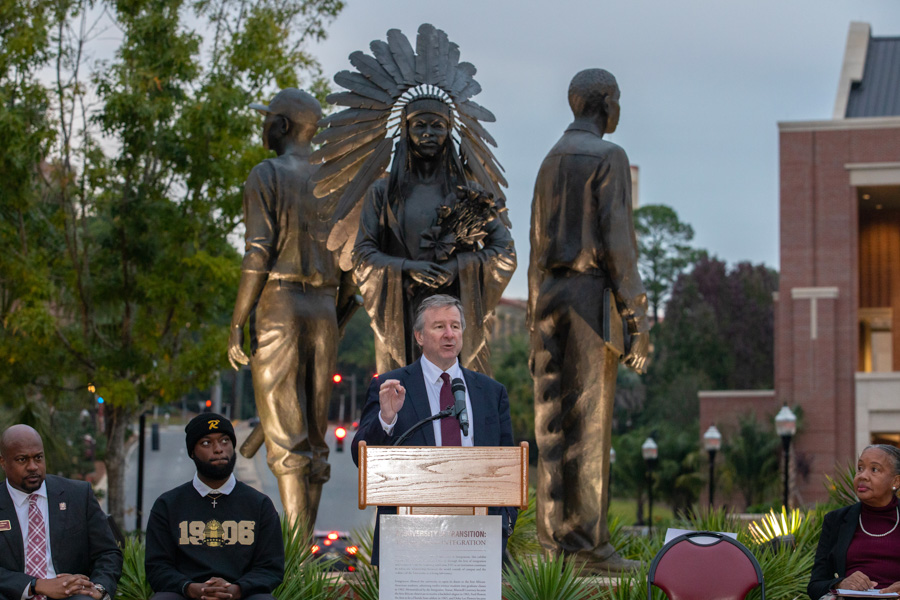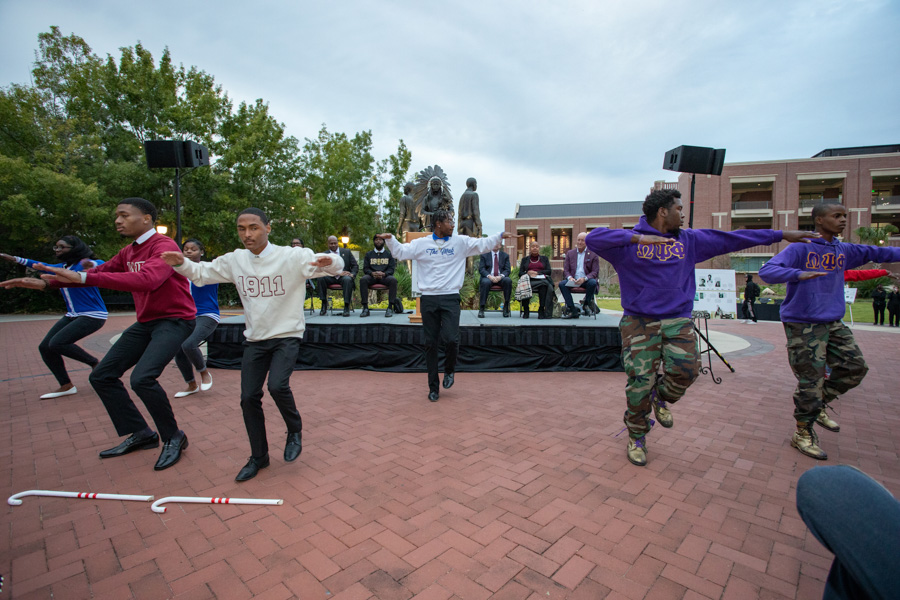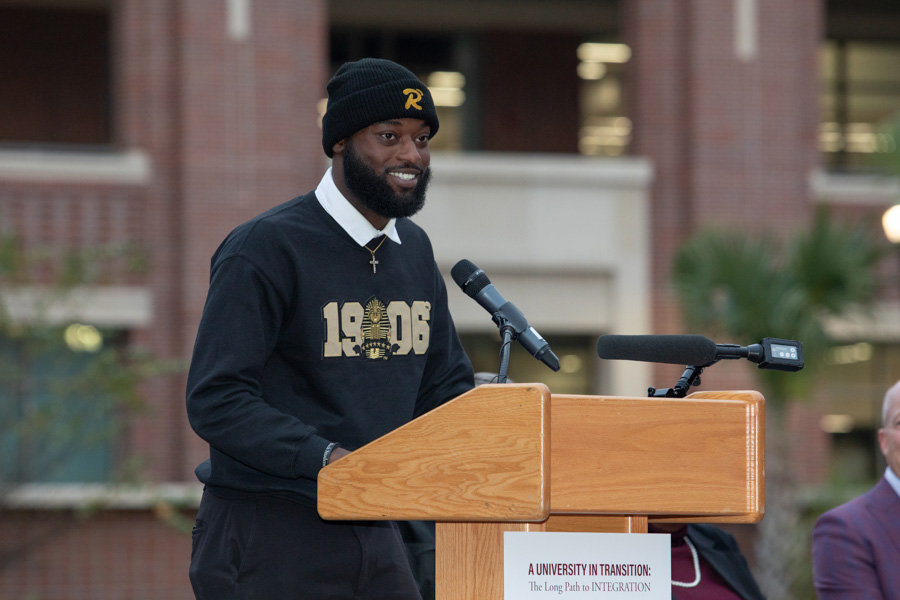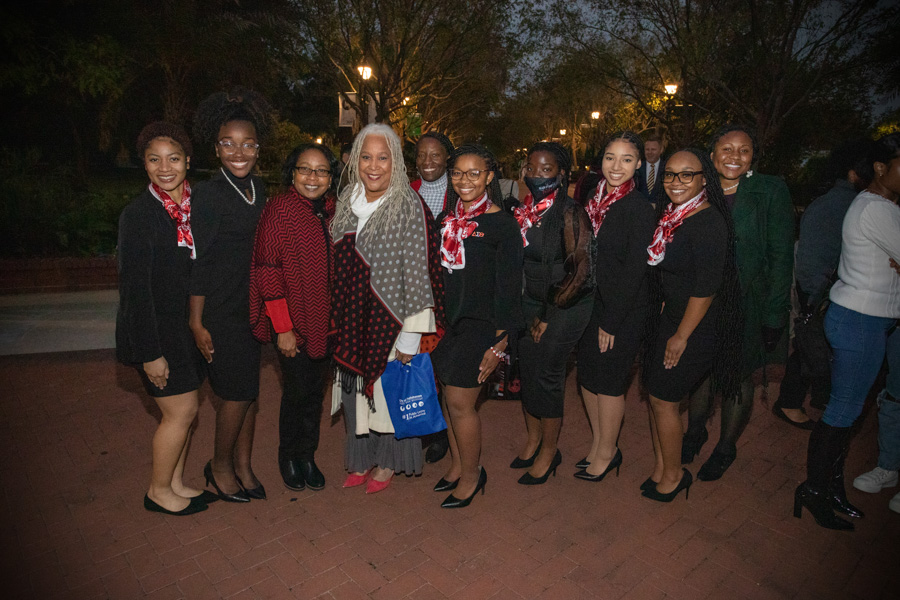Florida State University President Richard McCullough and Board of Trustees Chair Peter Collins commemorated the university’s 1962 integration during a ceremony Thursday, Nov. 17, that celebrated inclusion and the trailblazers who made it happen.
The 60th Anniversary of Integration Recognition Ceremony took place at FSU’s Integration Statue, which depicts and honors pioneers Maxwell Courtney, Fred Flowers and Doby Lee Flowers.
Courtney became the first African American student to enroll at FSU, in 1962, and to receive a bachelor’s degree, in 1965; Fred Flowers, the first to become an FSU athlete, in 1965; and Doby Lee Flowers, the first to be homecoming princess, in 1970.
“These brave individuals were strong in the face of adversity, and because of their courageous efforts, students of all races, ethnicities and backgrounds have made FSU the great institution it is today — a Top 20 public university.”
— Florida State University President Richard McCullough
“These brave individuals were strong in the face of adversity, and because of their courageous efforts, students of all races, ethnicities and backgrounds have made FSU the great institution it is today — a Top 20 public university,” McCullough said.
The Flowers siblings attended as special guests, joining FSU students, alumni, staff members, faculty members, dignitaries and the National Pan-Hellenic Council, which performed a unity step routine.
After the ceremony, FSU’s student-led initiative the Power of We and the Division of Student Affairs hosted the seventh-annual “The Longest Table” event at the Student Union Ballroom. The event focused on bringing together individuals of differing backgrounds for conversations that inspire change and promote unity on campus.
Doby Lee Flowers noted the work of the Black Student Union, which made her 1970 homecoming princess selection possible, “… with just 30 Black students at Florida State University.”
“By recognizing our differences, we recognize that it is diversity that brings strength,” she said.
Speakers at the ceremony emphasized the impact of integration on FSU’s campuses and the importance of, as McCullough said, paying tribute “to those pioneering students who paved the way for the rich culture, diversity and opportunity that exist at the university today.”
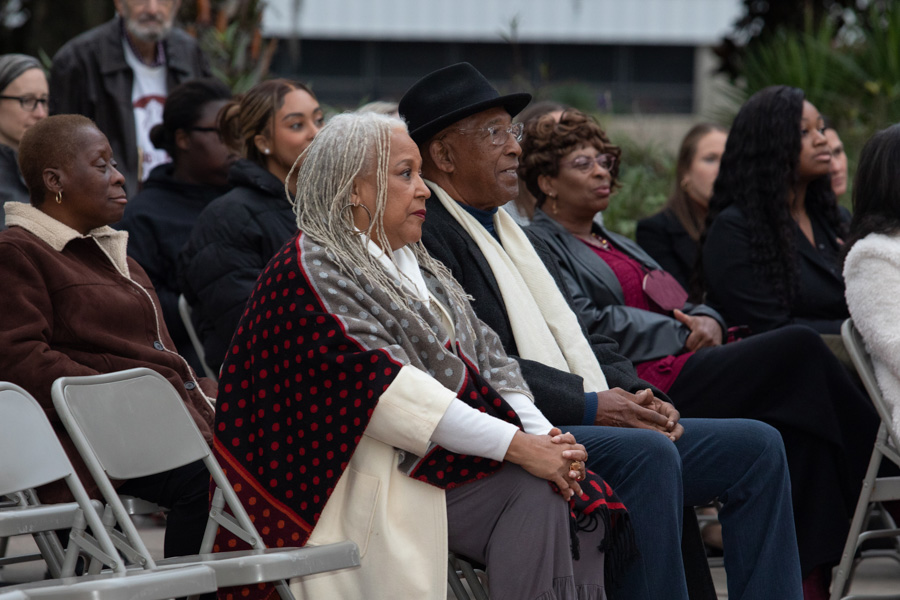
FSU National Black Alumni President Ahli Moore and FSU Black Student Union President Jasen Louis expressed their gratitude for the courage of FSU’s integration groundbreakers.
“We should always make sure that we pay homage to the people that made it possible for others, like myself, to be here at Florida State,” Moore said.
McCullough praised the university’s elimination of graduation-rate disparities among all students, a feat that won FSU the 2021 Degree Completion Award from the Association of Public and Land-grant Universities.
“The meta-education provided by everyone, from the international students to students of different backgrounds, transforms the educational experiences of students here at Florida State University,” he said.
Collins expressed the board’s commitment to go beyond discussions about efforts to cultivate diversity — and to act toward the goal.
Maxine Montgomery, FSU’s Robert O. Lawton Distinguished Professor, expanded on his comments and noted that these efforts take the work of the entire community.
“History reminds us that the work of social and political progress is never done,” she said. “It is always an incomplete task that demands our vigilance, collective efforts and a renewed commitment to creating opportunities for access and advancements for everyone.”





